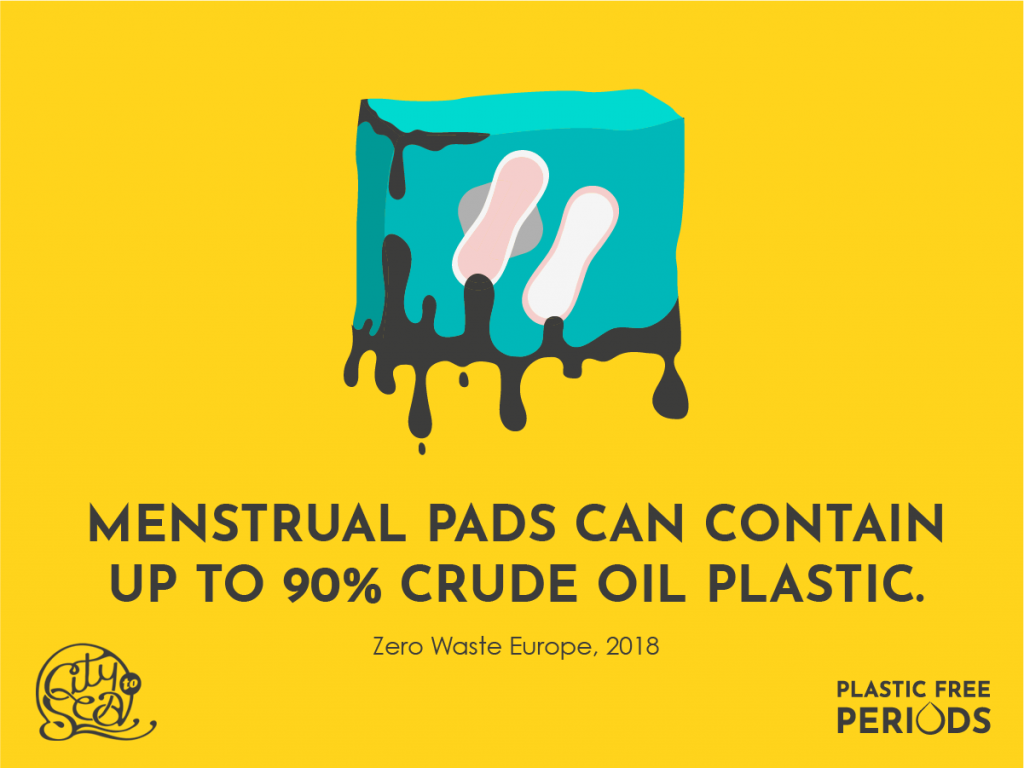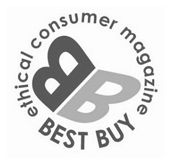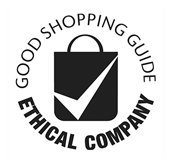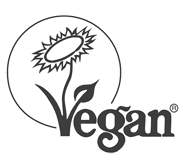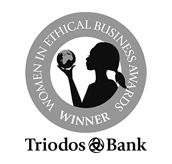Meet City to Sea – our charity partner on a mission to make periods plastic free
Plastic free periods are better for your body and better for the planet
Menstrual products are the fifth most common item found on Europe’s beaches. That means they are more widespread than single-use coffee cups, cutlery, straws, or even plastic bags.
At City to Sea, we believe there are ways to replace disposable, toxic period products with ones that are better for the ocean, our wallets and our bodies. As part of our award-winning Plastic-free periods campaign, we’ve partnered with Mooncup®. Together we are working to make marine plastic pollution from our periods a thing of the past.
Only a third of us are aware of plastics in period products
This year, we carried out new research. We asked 750 people with periods to share their perceptions and experiences around plastic and periods. It was the largest-ever research done around this topic in the UK. Our goal was to better understand the barriers and challenges to using reusable and sustainable period products.
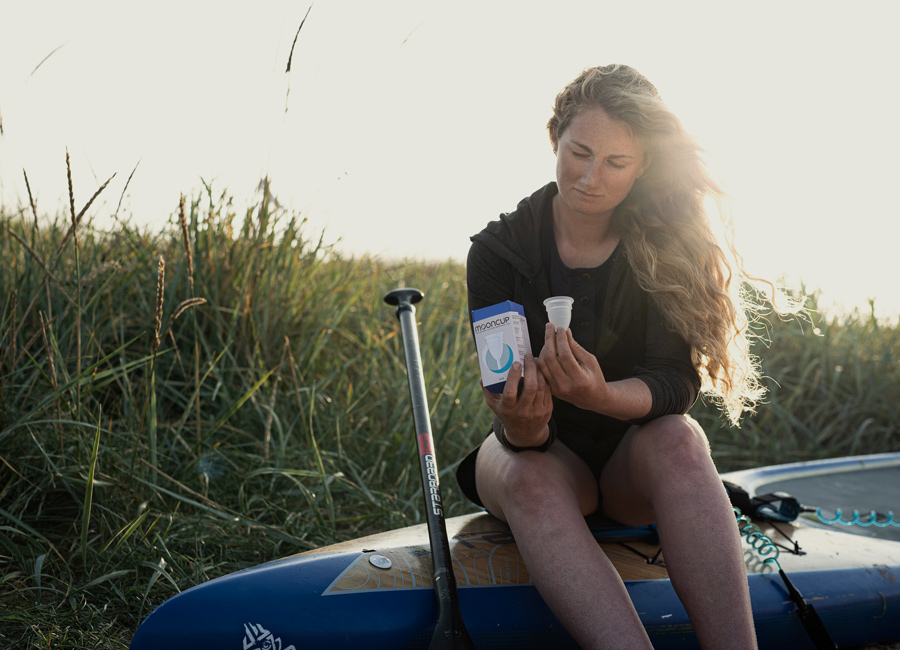
The results show great progress… but they also highlight some bloody serious issues we need to address. Here’s a breakdown of what we found out:
1. There is a lot to do when it comes to educating about plastic in period products
Two-thirds of the people we surveyed were not aware that there is plastic in disposable period products. Those aged over 36 were much less likely to know about the issue. The awareness was higher among 18-25-year-olds, but they tended to think that there was only plastic in period pads.
Of those aware that disposables contain plastic, 91% worried about period products’ impact on the environment. This highlights the fact that raising awareness about plastic pollution is important so consumers can make informed decisions when buying period products.
2. Consumers want a change from big period brands and manufacturers
Big period brands and manufacturers are polluting our oceans and consumers know that! Almost 8 of 10 respondents felt that the big brands have a duty to support the environment and remove plastic from their products.
Further 74% said they would respect a brand significantly more if they got rid of plastic within their products.
Did you know that a big-brand pack of 14 menstrual pads like Lil-lets, Tampax and Always contains the same amount of plastic as 5 carrier bags. That’s a lot of plastic considering that around 4.3 billion disposable menstrual products are used every year in the UK alone.
3. Reusable and plastic free alternatives – tell me more!
Consumers are becoming more interested in trying eco-friendly alternatives. Almost 7 in 10 respondents said they would try a different brand that is plastic-free with 18-25 years olds expressing the biggest interest. This is great news as more people switching to sustainable alternatives would help prevent thousands of tonnes of menstrual waste that currently ends up in landfills every year.
The main reasons to choose sustainable alternatives were to reduce plastic pollution, generate minimal waste and ingredient impact on their health.
Periods are expensive so the saving potential is another factor. Almost ⅔ of respondents were aware that they could save money by switching to reusable products.
Reducing costs is a key element in tackling period poverty as period products become more affordable and accessible to everyone. Period poverty is a serious issue that negatively affects the lives of many, including students, in the UK. Through our award-winning Rethink Periods education schools programme, we have learnt that students are still facing barriers when menstruating. Amidst the worst cost of living crisis for 40 years, over one in four (28%) UK girls aged 14-21 said they are struggling to afford period products. Most (80%) of those who struggled to afford period products have used toilet paper as a substitute.
4. The barriers we need to remove to stop period plastic pollution
Despite increased accessibility of plastic free and reusable products, some are still reluctant to switch. Practicality (35%), hygiene concerns (31%) and comfort (28%) were the most often cited barriers when it comes to switching to plastic-free or reusable period products. This shows that there are still many misconceptions about these alternative products.
Lack of education is a major factor. A third of people felt that their early education was not very comprehensive and topics such as reusable period products were not well covered or covered at all.
Lack of knowledge is a key issue when it comes to product disposal too: 28% of respondents said that they flushed tampons down the loo while 9% said they flushed period pads or liners. Many (41%) felt this was the most hygienic form of disposal.
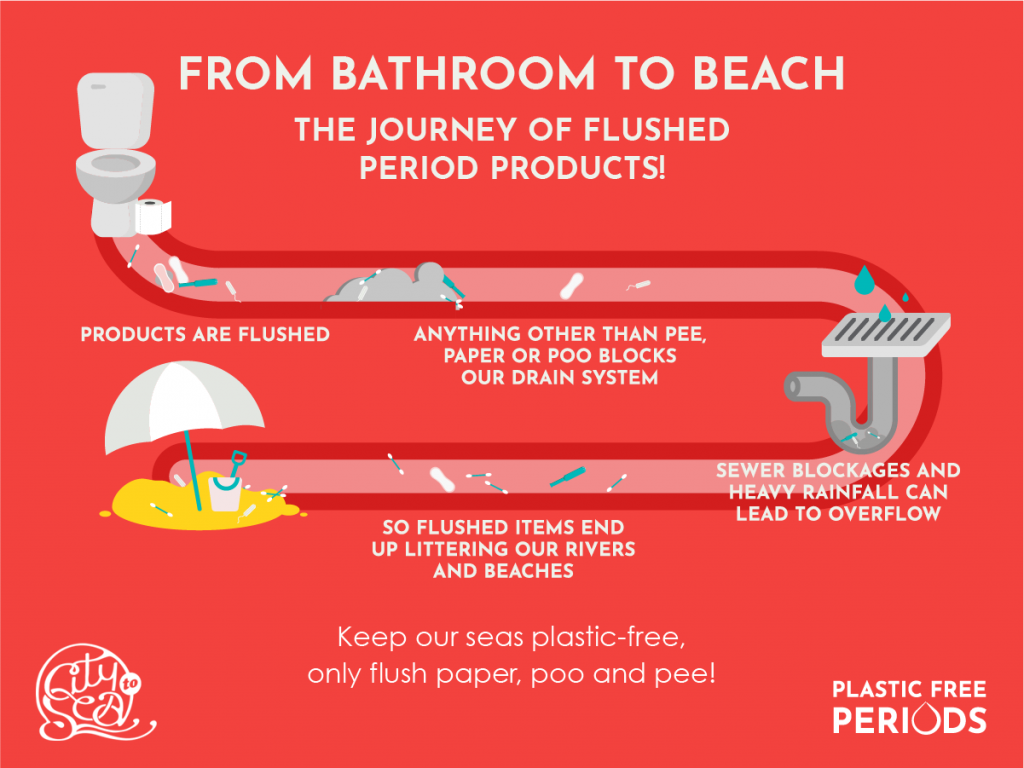
Not everything is negative though, more than half of those that flushed their period products away were unaware that tampons shouldn’t go down the toilet. Three quarters also said they would change their behaviour now that they knew that disposing of period products down the toilet can block sewers and cause wastewater to overflow into our waterways.
Overall, these results made us reflect on the need for more people to know about what’s in their period products. This was a decisive factor when switching to environmentally friendly alternatives. We think of it as a story of empowerment: knowledge about what we put into our bodies empowers us to make better choices for ourselves and for our planet. Period.
How we are turning the tide on period plastic pollution
City to Sea runs award-winning, people-powered, and community-serving campaigns that tackle the single-use plastic items found in our water sources. To date, 100 million pieces of plastic are estimated to be prevented by our campaigns.
We’re confident that one big piece of the puzzle to protect our environment, is to stop plastic at its source by reducing demand. That way, we’re using fewer resources and creating less waste.
We’re proud to work with communities, individuals, and incredible businesses like Mooncup Ltd to implement long-lasting behaviour change initiatives. We present practical solutions to make living with less plastic more affordable and accessible for everyone.
Through our Plastic Free Periods campaign, we’ve achieved incredible things. Thanks to our partners at Mooncup®, over 3 billion pieces of plastic have been saved from entering our waterways – something we have recently celebrated across our channels. Not to mention that £1 from every Mooncup sold via Mooncup’s website goes to City to Sea.
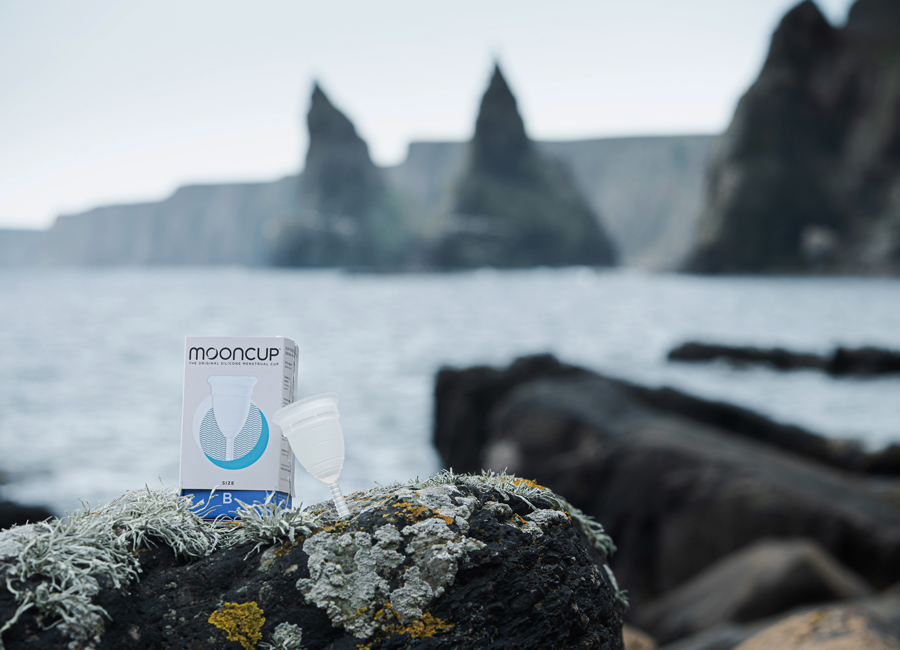
Raising awareness is key to changing behaviour
We’re raising awareness of plastic in periods and period equality on a mainstream level. So far, our campaign has reached more than 15 million people globally through our #plasticfreeperiods hashtag, ambassadors, and media like Women’s Hour, Glamour and Elle.
Our Rethink Period program for schools has reached 126,000 students nationwide. We successfully put pressure on the government to make sure plastic-free period products were included in the period equality scheme for schools.
Ultimately, we’re changing behaviours, 30% of our supporters said they felt inspired to talk to friends and family about sustainable period alternatives as a result of our campaign. We have changed the way schoolteachers talk about periods: 86% of teachers trained through Rethink Periods have changed their language to make it more gender-inclusive and avoid language that contributes to period stigma.
Join the period revolution. Find out more and get your Mooncup® here. 100% satisfaction guarantee!
You might like to read about:
How is the Mooncup® menstrual cup environmentally friendly? 10 reasons
The positive environmental, cultural and social impact of the Mooncup
Cal Major, Paddleboarder & #RealMooncupUser, shares one way to help tackle ocean plastic pollution
Meet the teens activists fighting the war against plastic pollution
The pandemic is no excuse to give up our fight against plastic pollution
How to choose the best menstrual cup for you

